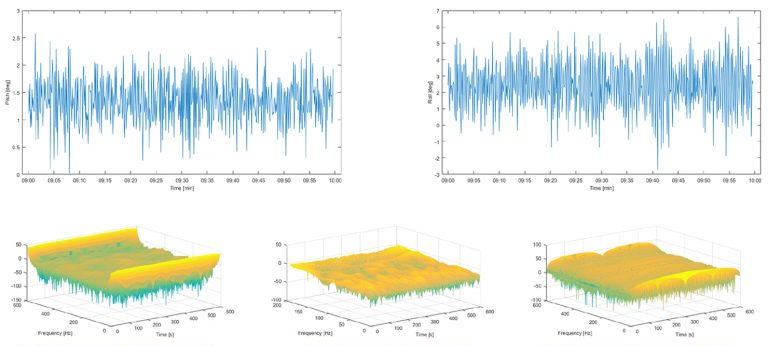
Various operations at sea, such as maintaining a constant ship position and direction, require a complex control system. Under such conditions, the ship needs an efficient positioning technique. Dynamic positioning (DP) systems provide such an application with a combination of the actuators mechanism, analyses of crucial ship variables, and environmental conditions. The natural forces of induced nonlinear waves acting on a ship’s hull interfere with the systems. To generate control signals for actuators accurately, sensor measurements should be filtered and processed. Furthermore, for safe and green routing, the forces and moments acting on the ship’s hull should be taken into account in terms of their prediction. Thus, the design of such systems takes into account the problem of obtaining data about the directional wave spectra (DWS). Sensor systems individually cannot provide high accuracy and reliability, so their measurements need to be combined and complemented. Techniques based on the recursive Kalman filter (KF) are used for this purpose. When some measurements are unavailable, the estimation procedure should predict them and, based on the comparison of theoretical and measured states, reduce the error variance of the analyzed signals. Different approaches for improving estimation algorithms have evolved over the years with the indication of improvement. This paper gives an overview of the state-of-the-art estimation and filtering techniques for providing optimum estimation states in DP systems.